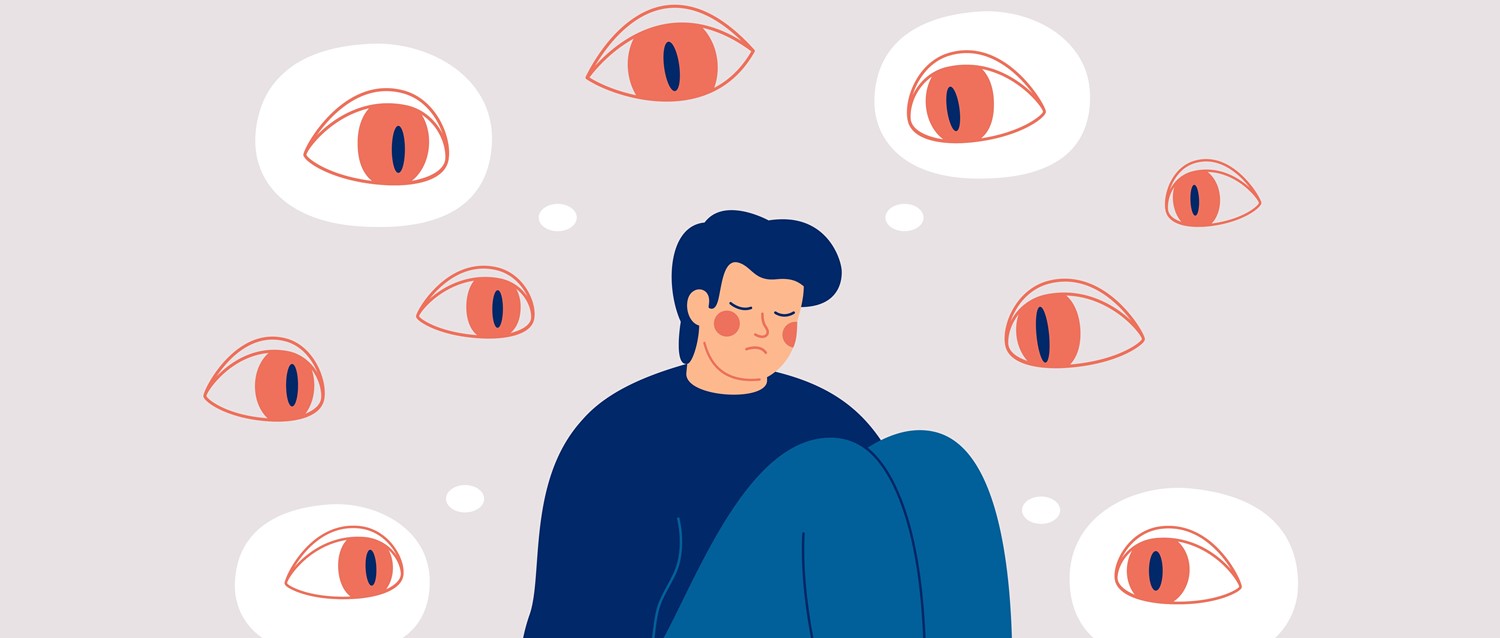
Living with post-traumatic embitterment disorder
Peer reviewed by Dr Sarah Jarvis MBE, FRCGPAuthored by Amberley DavisOriginally published 23 Apr 2022
Meets Patient’s editorial guidelines
- DownloadDownload
- Share
- Language
- Discussion
PTED is an extreme emotional response to an unexpected, negative life event. What is it like to live with this under-recognised mental health condition, and what support is out there?
In this article:
What is PTED?
If you're living in the UK, the chances are you won't have heard of PTED (post-traumatic embitterment disorder). The much more well-known mental illness that's triggered by trauma is PTSD (post-traumatic stress disorder).
The key difference between these two conditions is that PTSD centres around stress, while PTED centres around embitterment (the feeling of anger and bitterness, and a strong sense of injustice). PTED is a severe emotional reaction to a negative life event that subsequently takes over a person's life (prompting the description "revenge syndrome").
The National Bullying Helpline emphasises that people with post-traumatic embitterment disorder "are typically good people who have worked hard at something important" that is then unexpectedly destroyed by an event. Feeling betrayed, they are left crippled with a range of emotions, including stress, depression, frustration, and hopelessness.
How do you treat PTED?
Back to contentsWhile people in the USA and wider Europe are being treated for PTED, in the UK this condition remains largely unrecognised. This means that many undiagnosed or misdiagnosed people aren't getting the right kind of help and support.
For example, the therapies that can work for PTSD and stress - like meditation and shaking exercises - are unlikely to work on the embittered mind. Christine Pratt, the founder of the National Bullying Helpline, has led the campaign for post-traumatic embitterment disorder recognition in the UK. She believes that a PTED patient can respond well to wisdom therapy, a type of cognitive behavioural therapy which aims to provide a person with a new perspective and coping tools.
Continue reading below
Living with PTED: Chris' story
Back to contentsThe first step towards working through any illness is understanding it. Chris shares his experience with PTED following an unexpected event at work, and what it means to him to find a medical term that encompasses what he's going through.
My PTED experience
"I've found that validation is very difficult. Did something happen the way I remember it? In my circumstances, all the people who can validate my version of events have made their choice not to engage with me, and you have to learn to move forwards and attempt to let things go the best you can.
"Learning to say "that's on you" has been a hard lesson. After nearly 14 years of service and feeling that my employer was the only place I could reach out to for support, I find myself asking "why did they ignore me?" and "what did I do wrong?". It's difficult coming to peace with the fact that you may not get any answers to your questions.
"I’ve realised that I'm storing short-term memories that I only recall slightly later. This is a natural brain reflex related to trauma, and I do this to "protect myself" from any real or perceived situations that could cause me to react. This can sometimes work in my favour, and sometimes not.
"It can also be very difficult to share what's going on with those closest to you. You tend to cut yourself off or keep quiet to protect people. But in the long run, that can cause its own set of issues.
Finding a medical name
"When I received a diagnosis of C-PTSD (complex PTSD), I felt that for once in my life I was being listened to. It meant that I could start to research and investigate how to accept, resolve, and move forwards.
"As I was researching, I came across the term PTED. Before January 2022, I had never heard of PTED and getting a "name" for the issues I've experienced has helped me in trying to make sense of it all. I am actively pursuing an official diagnosis, as it's not readily recognised in the UK as of yet.
"When you read or are told about a condition that youhaven't heard about before, there can be a sigh of relief as your thoughts and feelings are validated. Of course, it can also have the opposite effect and result in further confusion and questioning (for example, I found myself asking "how many un-named diagnoses are there?" and "do I need to continue to pursue medical scans?").
"Now, armed with reputable resources on PTED, I've started on a journey of recovery. Articles and resources have also enabled me to share the information with friends who have supported me."
Healthcare services and treatments for PTED
"It is essential to keep a GP involved. In the early stages when things were really bad, I'd be in touch with my GP a couple of times a week. This reduced over time, and I now tend to have a review every three or four weeks and also know how to contact them or other services in an emergency if I need to.
"Due to certain traits that manifest as a result of the trauma, the emergency services have been called a few times and this probably fast-tracked me through the NHS waiting list in certain areas. They have been great, supportive, and not at all judgemental.
"I am currently on the NHS CBT (cognitive behavioural therapy) waiting list. In 2020, I had a series of 12 psychotherapy sessions which gave me some valuable tools, although I know I need more.
"Prescribed medication has helped to "even me out". They by no means solve any of the issues, but I use them as a crutch to smooth out any bumps in the road. I'm currently on mirtazapine for depression, escitalopram for the drastic mood swing cycles, and propranolol for anxiety."
PTED support networks
"People need to know it's not easy but there are organisations out there that are invaluable in supporting individuals through a severe crisis.
The following have helped me:
Facebook groups - people on a similar journey to me are becoming more open to talking about things that would probably have been kept quiet and personal before the COVID-19 pandemic.
Suicide Prevention UK (formerly Bristol Suicide Prevention) - they are friendly, non-judgemental, and will do what they can when they can. Their work is a valuable resource in helping people to make sense of their immediate thoughts/feelings.
Andy’s Man Club - they help men experiencing mental health issues, through regional weekly meetings and by posting positive information, updates, and resources.
Mental Health Mates - I've been told by my GP to exercise more, but it can be hard to feel motivated to get out and about. This organisation hosts regular walks where people can talk and share their stories. I attended one recently and had a fantastic couple of hours getting to know new people and exploring a different side of my city in a safe space. There was quite a bit of "yes, that happened to me" and "have you tried this?" chat.
Things I have learned and am still learning about PTED
It's important not to give up - while the journey is hard and doors will shut on you, there is help and support out there.
It helps to write things down or to keep a video diary - having this enables me to revisit events, so when I ask "did that happen six weeks ago?" I can go and check to validate my thoughts and feelings. I'm monitoring my moods with the iPhone app Daylio, an excellent tool for me to re-visit when I'm in a more stable frame of mind.
Reaching out is hard but worthwhile - I find that getting my internalised thoughts out in the open is a great help.
There is no time limit on this type of emotional journey - you just need to take the first step and keep going.
It's OK not to be able to do things - I've stopped making excuses over why I can't attend certain activities and I'm now honest and open, especially with myself. If people really want to support you, they'll understand and you can try again whenever you feel comfortable.
Exercise helps - I'm considering joining a local gym, or walking the Bristol/Bath cycle track, even if I just do an hour a day.
Make time for friends - I have started to make more "mate dates" and have noticed that my sleep and general well-being have improved.
"It’s a terrifying journey, and I do fear for the people out there with little experience of mental health problems who suddenly find themselves in a similar position and feel that the only "way out" is to listen to the inner voice.
"Whilst I battle with this on a daily basis, I am now able to rationalise my feelings and instead of burying them, I work through them. I still have a long, long way to go, but for the first time, I'm optimistic about my future."
Patient picks for Other mental health problems

Mental health
Do you have an anger problem?
We all experience anger, sometimes in response to the smallest things. So how can we tell the difference between a healthy expression of frustration and an ongoing problem? We asked the experts about the causes of prolonged and unhealthy anger issues and how to treat them.
by Georgia Gallant

Mental health
What it's like living with schizophrenia
Despite the fact that millions of people have schizophrenia, it is still widely misunderstood. In this article, we're going to explore what living with schizophrenia is like from the perspective of someone who was diagnosed over 30 years ago.
by Emily Jane Bashforth
Article history
The information on this page is peer reviewed by qualified clinicians.
23 Apr 2022 | Originally published
Authored by:
Amberley DavisPeer reviewed by
Dr Sarah Jarvis MBE, FRCGP

Ask, share, connect.
Browse discussions, ask questions, and share experiences across hundreds of health topics.

Feeling unwell?
Assess your symptoms online for free
Sign up to the Patient newsletter
Your weekly dose of clear, trustworthy health advice - written to help you feel informed, confident and in control.
By subscribing you accept our Privacy Policy. You can unsubscribe at any time. We never sell your data.